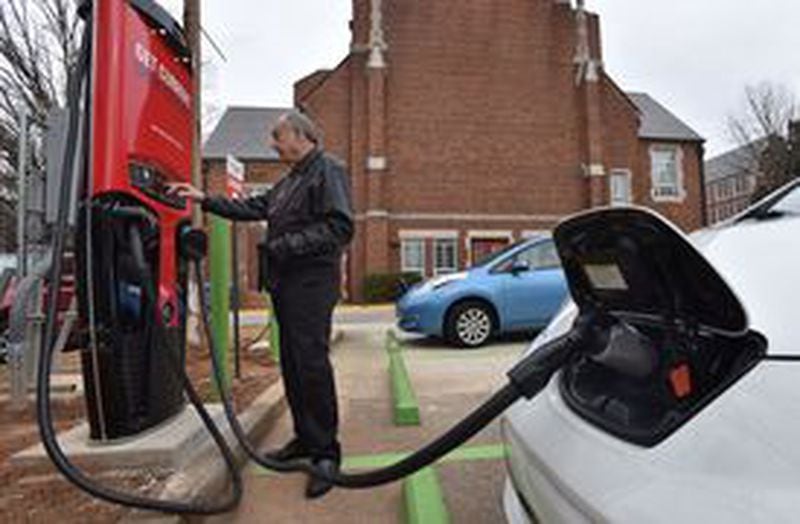State lawmakers are set to examine the economic impact of alternative fuels in Georgia during the lead-up to next year's legislative session.
Senate Resolution 1038, which passed in the last days of the session, created a joint study committee of the Georgia House and Senate to analyze and report on, among other things, the effect of the elimination of the Alternative Fuel Vehicle tax credit in 2015.
The loss of the popular state tax credit of up to $5,000 for electric vehicles dealt a huge blow to the popularity of all-electric plug-in vehicles. Retail sales of the Nissan Leaf and Kia Soul EV plunged nearly 90% after it expired June 30, 2105, according to the Clean Fuel Transportation Alliance.
RELATED NEWS: Electric vehicles could go mainstream in Georgia
Credit: Andria Brooks
Credit: Andria Brooks
Sen. Jeff Mullis, R-Chickamauga, who chairs the Senate Rules Committee, sponsored the resolution in hopes of growing Georgia's fleet of propane, natural gas and electric vehicles.
The Clean Fuels Transportation Alliance, which includes vehicle manufacturers, utilities, fueling equipment suppliers and public and private enterprise, lobbied heavily for the study committee to be created.
The Joint Study Committee will be composed of five members of the House and five members of the Senate, with a member of the House and Senate each having a co-chair appointed by Lt. Governor Casey Cagle and Speaker of the House David Ralston. The meeting dates, times, and members of the Joint Study Committee are still to be determined.
About the Author






